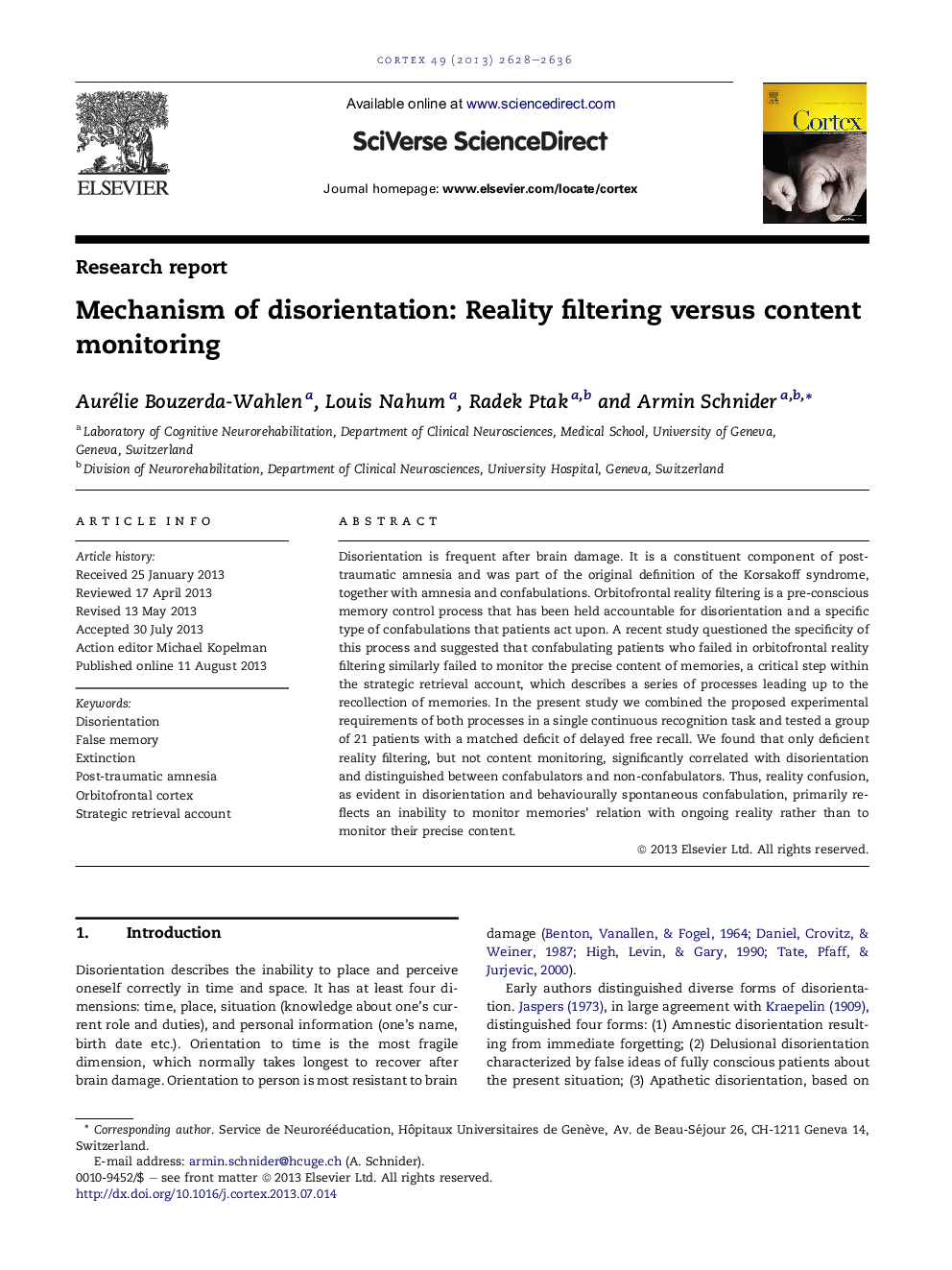| Article ID | Journal | Published Year | Pages | File Type |
|---|---|---|---|---|
| 10463136 | Cortex | 2013 | 9 Pages |
Abstract
Disorientation is frequent after brain damage. It is a constituent component of post-traumatic amnesia and was part of the original definition of the Korsakoff syndrome, together with amnesia and confabulations. Orbitofrontal reality filtering is a pre-conscious memory control process that has been held accountable for disorientation and a specific type of confabulations that patients act upon. A recent study questioned the specificity of this process and suggested that confabulating patients who failed in orbitofrontal reality filtering similarly failed to monitor the precise content of memories, a critical step within the strategic retrieval account, which describes a series of processes leading up to the recollection of memories. In the present study we combined the proposed experimental requirements of both processes in a single continuous recognition task and tested a group of 21 patients with a matched deficit of delayed free recall. We found that only deficient reality filtering, but not content monitoring, significantly correlated with disorientation and distinguished between confabulators and non-confabulators. Thus, reality confusion, as evident in disorientation and behaviourally spontaneous confabulation, primarily reflects an inability to monitor memories' relation with ongoing reality rather than to monitor their precise content.
Related Topics
Life Sciences
Neuroscience
Behavioral Neuroscience
Authors
Aurélie Bouzerda-Wahlen, Louis Nahum, Radek Ptak, Armin Schnider,
